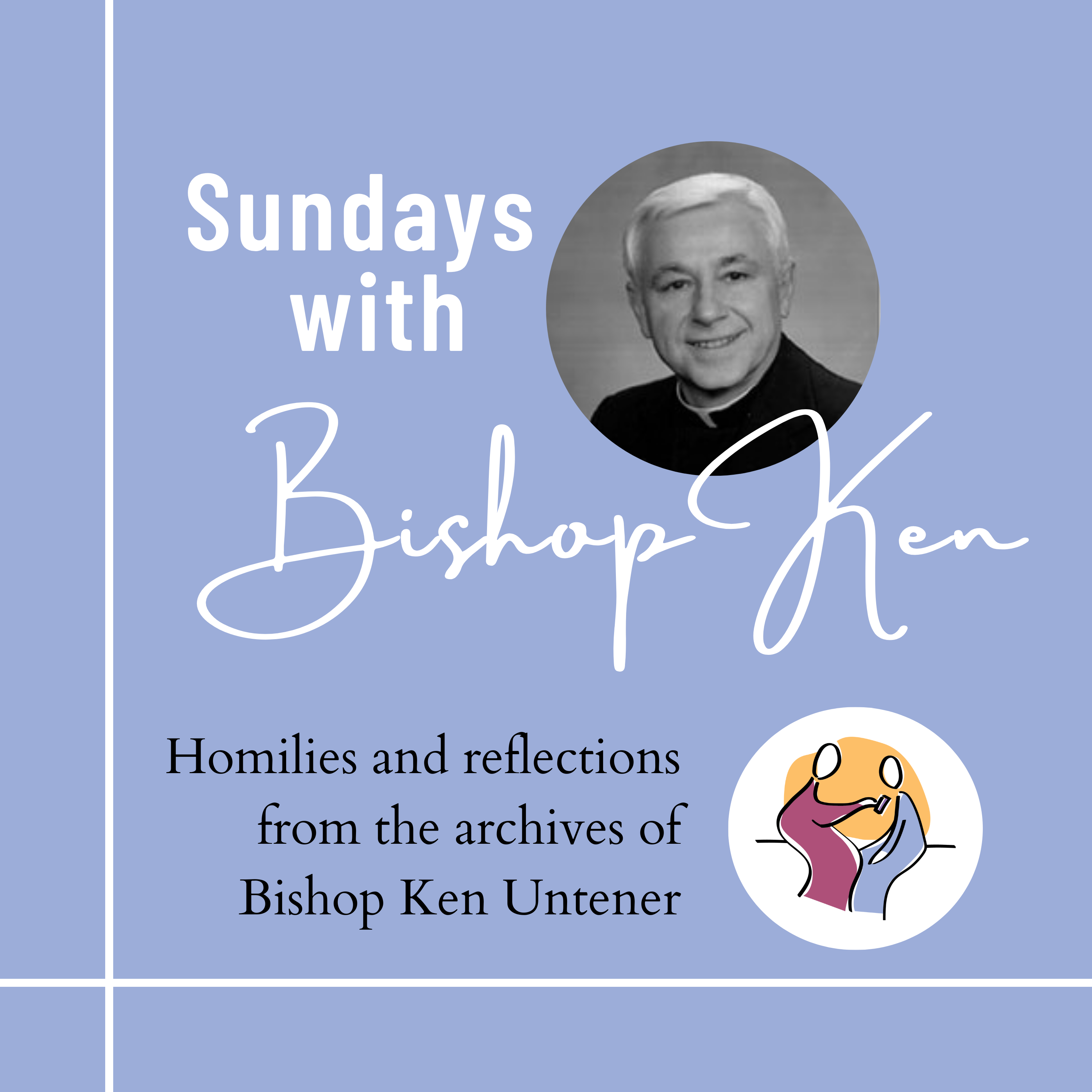Episode Transcript
Gospel Mt 22:34-40
A reading from the Holy Gospel according to St. Matthew
When the Pharisees heard that Jesus had silenced the Sadducees, they gathered together, and one of them, a scholar of the law tested him by asking, "Teacher, which commandment in the law is the greatest?"
He said to him, "You shall love the Lord, your God, with all your heart, with all your soul, and with all your mind. This is the greatest and the first commandment. The second is like it: You shall love your neighbor as yourself. The whole law and the prophets depend on these two commandments."
The Gospel of the Lord
The commandments that Jesus quoted - to love God, and to love our neighbor - were part of the Old Testament. Some background could be very helpful.
In Old Testament times, and in the times of Jesus, belonging to a group meant everything. They didn't have the networks that we're used to today - a national government, state governments, a police force... or networks of support - health insurance, welfare, assisted living. You belonged to a tribe, or to a particular town, and it meant everything. These people were your extended family. They are the ones who looked after you, and the ones you looked after. You were connected to them, and they to you. You depended on one another.
Love
That's what the word "love" meant most of all: Accepting your connection to a certain group of people, a wider group. To love was to recognize and maintain the ties that bound you together, and to say, "I will help you, care about you, and protect you."
That's what Jesus meant when he said, "Love your neighbor as yourself." "Neighbor" meant the group of people with whom I was linked - my tribe, my townspeople or, in some cases, everyone who was Jewish. Jesus would later extend the notion of neighbor to include all people.
Now the reason why this understanding of love can be so helpful is because that word can carry many different meanings - affection, emotion, feelings, passion, romance. Those are part of some love relationships and they can help create a very beautiful friendship. But when we're talking about loving our neighbor - in effect, all people - we're talking about the more fundamental meaning of "love," namely, to accept our connection, ties, bonds, links with other people... to care about them and care for them... to want good things to happen to them.
Loving My Neighbor
This understanding of love isn't new to us. We feel a connection, for example, with our family. You hear people say something like, "Well, I don't agree with a lot of what he does, but he's my brother." Parents, of course, have that kind of attachment to their children, even if their children get into trouble.
I bring all this up because it puts "love of neighbor" within reach. We can't conjure up affection for everyone in the world. But what we can do is recognize and accept the connection we have with them, and that is a giant step forward.
Think about it for a moment. We are daughters and sons of God, which makes people across the world our brothers and sisters, members of our family. I'm connected to people in the Sudan, in Mexico, in China, in Afghanistan, in Iraq... and on and on. Simply to recognize and accept the connection changes a lot of things. Why, if we all caught it, it would change the world.
To recognize that is to fulfill what Jesus cites as one of the two greatest commandments: To love your neighbor as yourself. To fail to recognize that, to reject our relationship as brothers and sisters is to fail to live up to that commandment.
Which do I choose?
I should also point out that to acknowledge and accept and live up to this connection is to experience a great deal of freedom. It is not a confining thing to do. It draws us outward, makes us expansive. We become more the person we were created to be.
Loving God
There's one more thing to say about this. The other commandment Jesus cited, and the one he put first, was to love God with all our heart, with all our soul, and with all our mind.
We can apply the root meaning of love to this too. We truly are God's daughters, God's sons. I am connected to God. I depend on God for each second of my existence.
The truth is, we can't always summon affection or feelings toward God. But the root meaning of love is to feel connected and to accept the connection. God is my father, my mother. I am part of God's life and God is part of my life.
To think that way and live that way can make a major difference. And it's within reach, here and now.
Think about these two commandments. They're so simple, and doable. Pray for them. Apply them to real life. Jesus says that all the commandments are summed up in, and depend on these two: To love God, and to love my neighbor. It's within reach. And it's everything.


